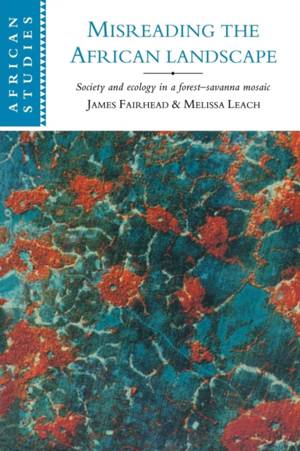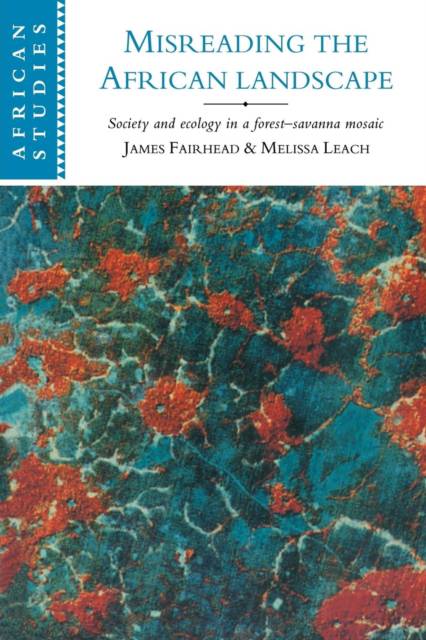
Bedankt voor het vertrouwen het afgelopen jaar! Om jou te bedanken bieden we GRATIS verzending (in België) aan op alles gedurende de hele maand januari.
- Afhalen na 1 uur in een winkel met voorraad
- In januari gratis thuislevering in België
- Ruim aanbod met 7 miljoen producten
Bedankt voor het vertrouwen het afgelopen jaar! Om jou te bedanken bieden we GRATIS verzending (in België) aan op alles gedurende de hele maand januari.
- Afhalen na 1 uur in een winkel met voorraad
- In januari gratis thuislevering in België
- Ruim aanbod met 7 miljoen producten
Zoeken
Misreading the African Landscape
Society and Ecology in a Forest-Savanna Mosaic
Melissa Leach, James Fairhead
€ 50,45
+ 100 punten
Omschrijving
Islands of dense forest in the savanna of 'forest' Guinea have long been regarded both by scientists and policy-makers as the last relics of a once more extensive forest cover, degraded and degrading fast due to its inhabitants' land use. In this 1996 text, James Fairhead and Melissa Leach question these entrenched assumptions. They show, on the contrary, how people have created forest islands around their villages, and how they have turned fallow vegetation more woody, so that population growth has implied more forest, not less. They also consider the origins, persistence, and consequences of a century of erroneous policy. Interweaving historical, social anthropological and ecological data, this fascinating study advances a novel theoretical framework for ecological anthropology, encouraging a radical re-examination of some central tenets in each of these disciplines.
Specificaties
Betrokkenen
- Auteur(s):
- Uitgeverij:
Inhoud
- Aantal bladzijden:
- 384
- Taal:
- Engels
- Reeks:
- Reeksnummer:
- nr. 90
Eigenschappen
- Productcode (EAN):
- 9780521564991
- Verschijningsdatum:
- 17/10/1996
- Uitvoering:
- Paperback
- Formaat:
- Trade paperback (VS)
- Afmetingen:
- 152 mm x 228 mm
- Gewicht:
- 548 g

Alleen bij Standaard Boekhandel
+ 100 punten op je klantenkaart van Standaard Boekhandel
Beoordelingen
We publiceren alleen reviews die voldoen aan de voorwaarden voor reviews. Bekijk onze voorwaarden voor reviews.









